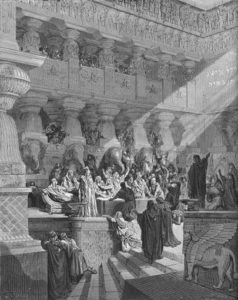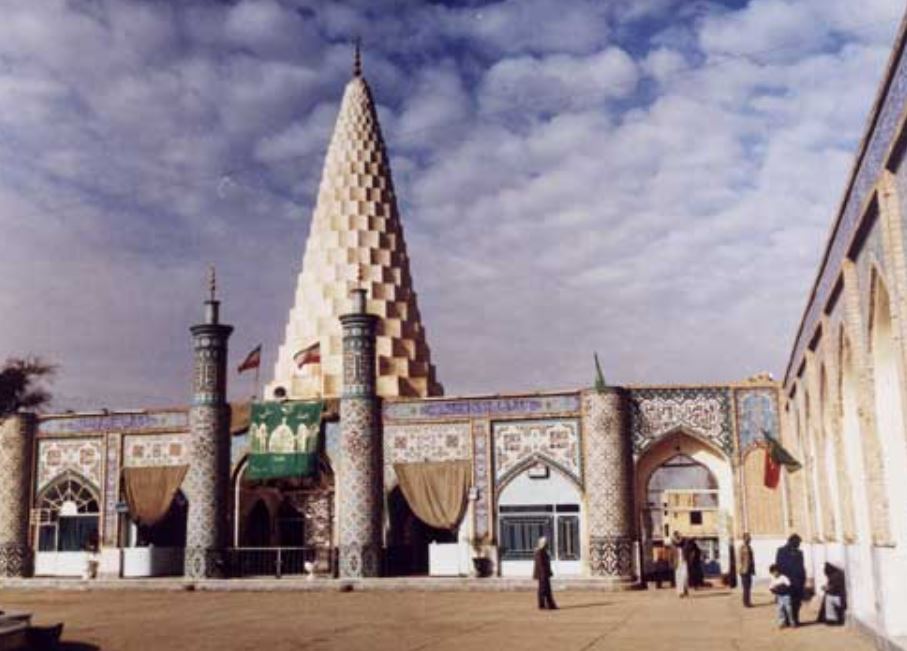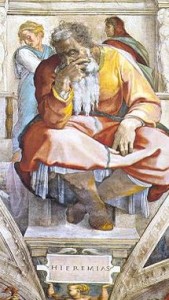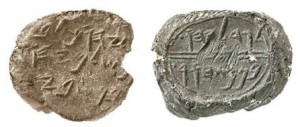The Secret Hero of Purim

‘Daniel Interpreting the Writing on the Wall’ by Gustav Doré
Daniel (c. 6th-5th century BCE) was born in Jerusalem to a noble family of scribes and scholars. In the third year of King Yehoyachin’s reign, King Nebuchadnezzar of Babylon subdued the Kingdom of Judah and made it a tributary of the Babylonian Empire. Nebuchadnezzar took a number of noble Jewish families with him back to Babylon, including young Daniel. Together with his friends Hananiah, Mishael, and Azariah, Daniel was raised in the royal palace and trained by the Babylonian wise men. The four were given new names: Shadrach, Meshach, Abednego, and Beltshazzar. However, the Jewish youths held on to their faith, and refused to eat the non-kosher food of the Babylonians. God blessed them to be wiser than all the greatest sages of Babylon. Daniel grew up to become one of the trusted advisors of Nebuchadnezzar and his successors. Daniel also served as an important leader of the exiled Jewish community in Babylon. His prophecies were later collected by the Knesset HaGedolah (“the Men of the Great Assembly”) and make up the Biblical Book of Daniel. In one famous episode, we read how envious ministers in King Darius’ court passed a law to forbid praying to any deity except the king. They then accused Daniel of praying to his God—which he did and did not deny. Daniel was punished by being thrown into a lions’ den, from which he was miraculously saved. The envious ministers were themselves consumed by the lions. King Darius and his court were then convinced of the existence and supremacy of God: “I make a decree, that in all the dominion of my kingdom men tremble and fear before the God of Daniel; for He is the living God, and steadfast forever, and His kingdom is that which shall not be destroyed…” (Daniel 6:27) The Talmud points out that Daniel is the same person referred to as Hatach in the Book of Esther. It was he who took care of Esther in the royal palace and communicated between her and Mordechai. And so, Daniel was also the secret hero of the Purim story!
Words of the Week
Purim and Chanukah are both about antisemitism. There is one obvious difference between them: Haman, of the Purim story, wanted to kill Jews. Antiochus, of the Chanukah story, wanted to kill Judaism. It was the difference between Nazi Germany and Soviet Communism.
– Rabbi Jonathan Sacks

Tomb of Daniel in Shush (Susa), Iran.


